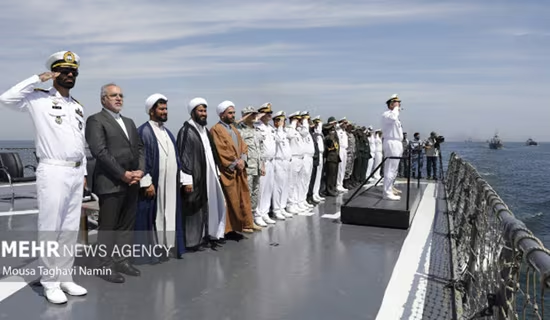Russian officialdom is gloating over America's debacle in Afghanistan, but even more balanced observers are aghast. Kommersant Radio's foreign policy specialist Maxim Yusin, who does not trust the Taliban is shocked by America's selfishness in leaving Afghanistan in a worse state than when they entered and taking the decision in total disregard of its Afghan clients and NATO allies. Those who previously relied on American support will have to rethink their options.
Yusin's article follows below:[1]

Maxim Yusin (Source: Allpravda.info)
"The withdrawal of American forces from Afghanistan and everything that accompanied it will go down in history as the most graphic, eloquent and shocking symbol of a great power’s humiliation. Of course, there were previous precedents: the withdrawal of the same US from Saigon, the French evacuation of Algeria, and the British departure from India that were no less dramatic and were accompanied by even greater human suffering and casualties.
"However, it was a different era back then; without Internet, social networks, and Telegram channels. Back then, the entire planet was not aware of the scale of the disaster and the mistakes made, people didn’t follow them on live TV.
"Never before has the failure of a great power, of its top leadership, its armed forces, and its special services been so public. The consequences of the events should be realized by all: by America, its allies, and its adversaries. It is even possible that this will be a watershed moment in geopolitics: before and after Kabul. Only time will tell when and at what cost will Washington be able to liquidate the colossal toll to its reputation and whether it can do so at all.
"For now, the picture is lamentable. If one was to compare the situation in Afghanistan to that of 20 years ago, when the Americans started their military operation, then the current situation is much worse.
"At that time Islamic radicals had nowhere near full control of the country. In the country’s north there was a quasi-state, which was under the authority of the Northern Alliance that was not subordinate to the Taliban and filled the role of a peculiar buffer on the borders with the post-Soviet Central Asian republics. Now there is no such buffer; the Taliban have extended their power to practically all of Afghanistan, and they are better armed than the armies of many states in the region thanks to the seized American equipment.
"The Taliban movement used to control mostly Pashtun areas, now it has reached the borders of Tajikistan, Uzbekistan, Turkmenistan, and Iran. Thus, there is a tangible danger, despite the assurances of the new rulers in Kabul, that the Afghan chaos may sooner or later boil over beyond the country’s borders.
"This scenario, however, won’t bother the Americans anymore. Having withdrawn from Afghanistan, they have demonstrated a striking example of selfishness, putting both their Afghan clients and their own NATO allies, who have fought side by side with them for 20 years, before a fait accompli. In deciding to withdraw its forces, Washington didn’t find it necessary even for appearances' sake to consult with the British, Germans, Dutch, Canadians, and Australians, who lost hundreds of soldiers in Afghanistan and should’ve had at least an advisory capacity (just not in the eyes of the Biden administration though). These events will certainly have long term consequences.
"And those countries and politicians, who were oriented towards the US and regarded it as the guarantor of their security, will be sure to learn from Afghan history.
"This was the way that Afghan President Ashraf Ghani saw it, who’s now a former president.
"The very same Taiwanese, concerned about an imminent clash with China, will no longer experience the previous confidence in Washington’s promises to provide military assistance. They might even reach the conclusion that it is better to decide the issue peacefully by making reasonable compromises, while Beijing still has these compromises on offer. And the very Saudis will feel less confident in confronting a more militarily powerful Iran. The important question is whether the U.S. will give them the necessary assistance. And the same Ukrainians as well, in the event of a serious confrontation with Moscow over Donbass or the Crimea, will probably have to keep in mind the sorry experience of Ashraf Ghani America's ally in Kabul.
"Of course, every conflict has its own peculiarities, and every region carries a different value in American eyes. Each ally, each client, will hope that Washington won’t abandon him… as President Ghani in Afghanistan hoped until the last moment."
[1] Kommersant.ru, August 31, 2021.




